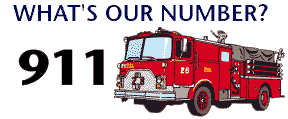Office of the Fire Marshal
|
501 Main Street South
(3rd Floor)
Southbury, CT 06488
Maps and Directions
|
P: (203) 262-0620
Monday, Tuesday, Thursday:
8:00am - 5:00pm
Wednesday: 8:00am - 6:00pm
Friday: Closed
|
|
Fire Safety Tips For Older Adults
Older people are at special risk for death and injury from fires. To protect yourself and those you care about, follow these seven tips:
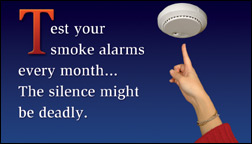 |
(1) Install and Maintain Smoke Alarms
|
Install working smoke alarms on every level of your home, especially near sleeping areas. Test and dust each alarm monthly, and change the batteries at least once a year.
Smoke alarms have significantly reduced the risk of death or injury from fire. Smoke alarms give people an early warning that allows for early escape. If possible, install smoke alarms away from kitchens and bathrooms to reduce nuisance alarms. To control nuisance alarms, install alarms with a temporary silencing feature. If you are hearing-impaired, install an alarm that alerts using a visual signal. If necessary, get someone (a relative, neighbor, or fire department official) to help you test and clean each alarm monthly and change the batteries at least once a year.
 |
(2) Use Smoking Materials Safely
|
Never smoke in bed, while drowsy, or while under the influence of medication or alcohol. Use large, deep ashtrays for smoking debris, and let the contents cool before you dispose of them.
Careless smoking accounts for nearly one-third of the fire deaths in adults over age 70. It is also a leading cause of fire injuries among older people. If you smoke, never smoke in bed, while drowsy, or while under the influence of medication or alcohol. Use large, deep ashtrays so smoking materials don’t fall out. Warm ashes dumped in wastebaskets can smolder for hours, then ignite surrounding trash. At the end of the day, put the ashtray in the sink, fill it with water, and let it sit overnight before you dispose of the contents. Or, dispose of cigarettes and matches in a metal container, such as a coffee can with a lid, and let it cool overnight. Check furniture for smoldering cigarette butts and ashes before going to bed.
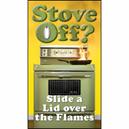 |
(3) Keep pot handles turned inward, and keep cooking surfaces and surrounding areas free from clutter and grease build-up
|
Use pot holders and oven mitts. Never lean over a hot burner and avoid wearing loose clothing with flowing sleeves while cooking. Take a reminder with you (or set a timer) if you must leave the kitchen with food cooking on the range top.
Cooking fires are a leading cause of burn injuries among older people. Prevent fires and burns by being watchful and alert when you cook, keeping pot handles turned inward, not overheating food (especially fats and oils) and keeping cooking surfaces clean. Always use pot holders and oven mitts when opening the oven and handling hot pots and pans to prevent burns. While cooking, never lean over a lit burner and avoid wearing loose clothing with flowing sleeves, such as nightgowns or bathrobes. These can catch on fire from a burner. If you must leave the kitchen when you are cooking, set a timer and take a pot holder or wooden spoon with you to remind you that food is cooking.
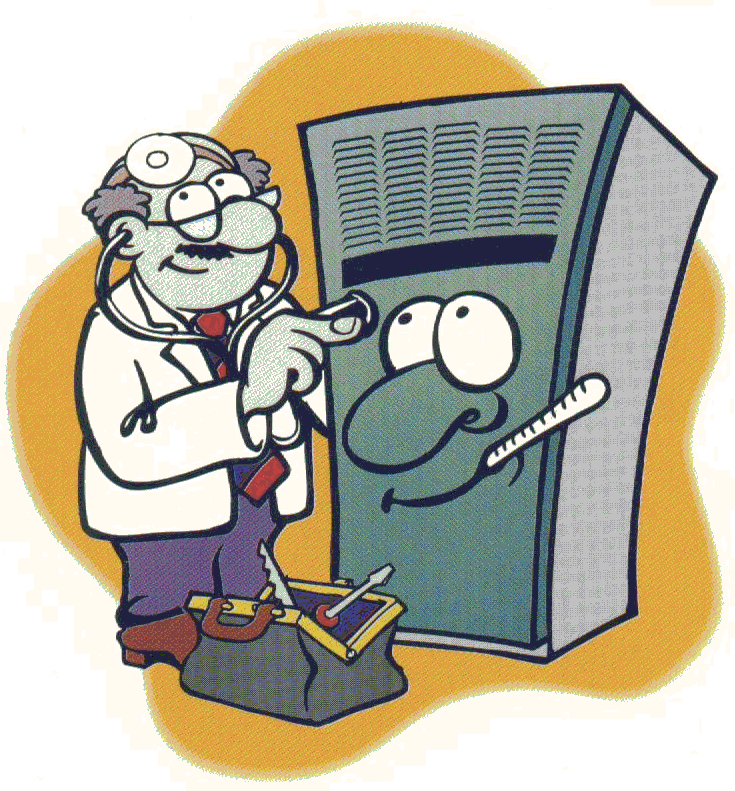 |
(4) Heat Your Home Safely
|
Have a professional service all heating equipment annually. Keep combustibles and anything that can burn or melt away from all heaters, furnaces, fireplaces, and water heaters. Never use a range or oven to heat your home.
Hundreds of fires start each year when things that burn, such as curtains, clothing, bedding, gasoline, or paint solvents, are placed too close to heaters, furnaces, wood stoves, fireplaces, or water heaters. Store flammable liquids like cleaning solvents and gasoline outside of your home. Have at least three feet of clearance in all directions around portable/space heaters. Use the proper fuel for all heating equipment. Change filters in furnaces monthly. Keep chimneys clean. To prevent scalds, set the temperature of your water heater no higher than 120°F. All heating devices should be checked and serviced every year by a professional. Use your range or oven for cooking only — never to heat your home.
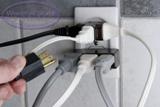 |
(5) Practice Electrical Safety
|
Have a professional electrician inspect your home’s electrical wiring system at least every 10 years, and make recommended repairs. Never overload the electrical system. Plug each appliance directly into its own outlet and avoid using extension cords. Have an electrician install ground fault circuit interrupters (GFCIs) in rooms where water may be present. Install and maintain electrical appliances according to the manufacturers’ instructions.
Homes more than 40 years old are three times more likely to catch on fire from electrical causes than homes 11 to 20 years old. That’s because older wiring may not have the capacity to safely handle newer appliances and equipment and may not incorporate updated safety features. Ground fault circuit interrupters (GFCIs) are important electrical safety devices that offer superior protection against dangerous electric shock and also may prevent some electrical fires. Have GFCIs installed in bathroom and kitchen circuits, and in other locations where water and dampness may be present. Call a professional electrician to make sure you have the proper fuses, find reasons for blown fuses and tripped circuit breakers, replace old or damaged outlets and install more outlets if needed. You are less likely to overload electrical outlets if you use no more than one high-wattage appliance on a circuit at a time. Extension cords are meant for temporary use only, and should be unplugged when not in use. If you see frayed cords on older appliances, have the cord repaired; better yet, replace the appliance altogether.
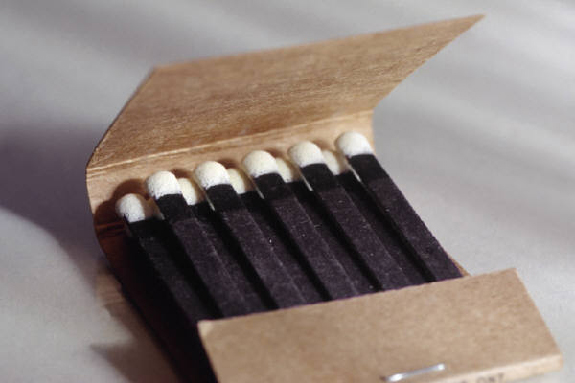 |
(6) Keep Matches and Lighters Away from Children
|
Store matches and lighters in a locked drawer or a high cabinet away from the reach of grandchildren or other youngsters. Make sure lighters are child-resistant.
Young children are often attracted to products that can produce flames. Be sure to lock away any matches and lighters when you have young visitors in your home. Using lighters that are child-resistant can prevent deaths and injuries. If you light candles in your home, keep them out of the reach of children. Make sure candles are placed on a wide flat base where they could be hard to tip.
 |
(7) Know What to Do in Case of Fire
|
Practice two ways out of every room in your home. Get out as soon as you discover a fire; do not try to fight the fire. Once out of the house, stay out; do not attempt to enter a burning home to gather possessions left behind. Immediately dial 9-1-1 or your local emergency number for help, preferably from a neighbor’s phone.
Planning what to do in case of fire can make the difference between life and death. You should practice two ways out of every room in your home. If you use a wheelchair or walker, or otherwise might have a problem escaping from a fire, discuss your escape plans ahead of time with your fire department, your family, the building manager, and neighbors. Let them know about your special circumstances and ask them to help plan the best escape routes for you.

The most important thing when a fire occurs is to get out of the house immediately and stay out, then call the fire department. If you are behind a closed door, feel it with your hand before opening it. If the door is hot, look for another possible exit out of the room. Make sure windows can be unlocked and opened, and security bars released. If you are passing through a smoky area, stoop low so that your head is beneath the smoke. If your clothes catch on fire, stop, gently drop to the ground, cover your face and roll to smother the flames. Do not try to fight the fire; that will only delay your escape. Leave your possessions behind, and never go back into a burning building for any reason.
